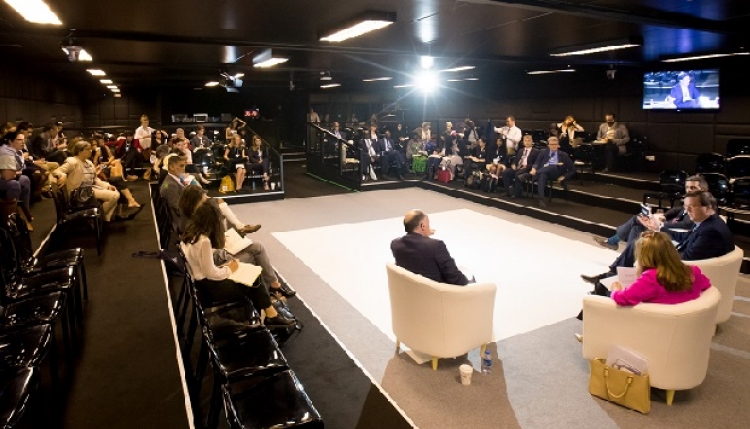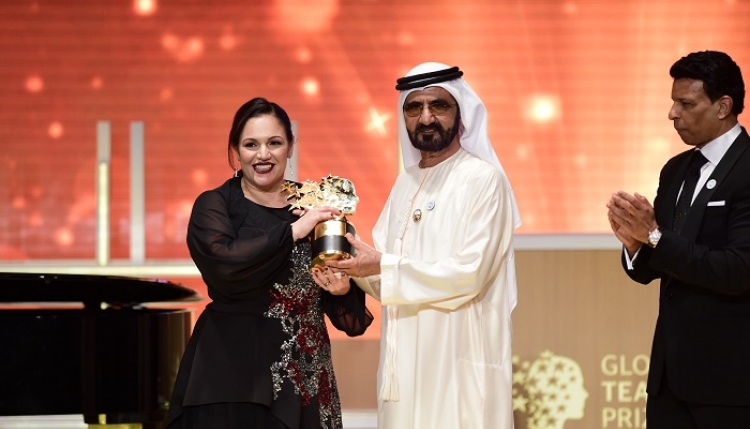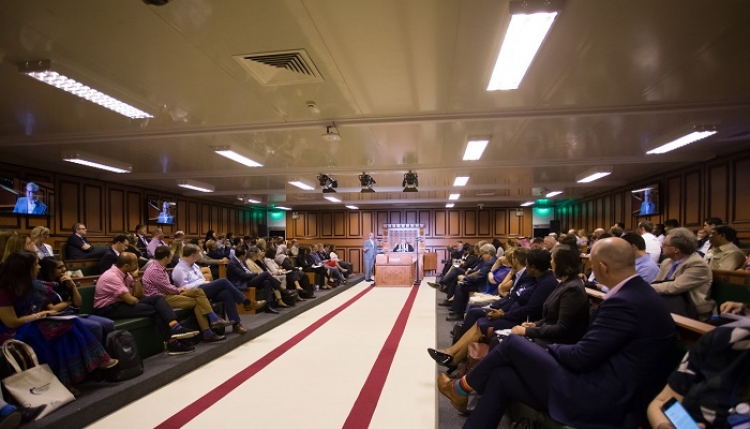As our world continues to be shaped by armed conflict, the Global Education & Skills Forum 2018 discoursed the role of education in tackling war and peace, and identifying what educators, civil society and policy makers can do to affect positive change.
Moderated by Jamie Lowether-Pinkerton, the ‘Boardroom’ panel comprised of Her Excellency Sarah Zeid, MNCH Advocate; Scott Weber, Director General of Interpeace – an international non-governmental peace building organisation, and Patrick Yousef, Deputy Regional Director-Africa, for International Committee of the Red Cross.
Kick-starting the discussion, Patrick Youssef asked for solutions for inequality and injustice to be injected into education, while simultaneously stressing that education is “not the solution to all problems”, and to look at it in a holistic manner, as part of a “bigger service provision to bring social cohesion.”
Citing exclusion at social, political and economic levels as the core of every conflict, Scott Weber agreed that educational inclusion as one of the solutions.
“Our systems are leaving too many people behind,” said Weber. “Our challenge is to think-up better social and political solutions to create more inclusive societies,” he added, identifying ‘trust’ in society both, horizontally through inclusion, and vertically between governments and people as a litmus test of a successful social contract.
Weber underlined the role of education in bringing about change at a macro-level and not just at an individual level, stating the need to develop emotional intelligence and cognitive skills through formal education, and via families and communities to promote values of social cohesion.
When asked to what degree national education is a microcosm dictated by society, Weber said: “We put too much responsibility on education to be the answer, when it’s only a part of the answer.”
Her Excellency Sarah Zeid furthered the discussion by drawing parallels between underdevelopment and poor healthcare among women and children, and its direct impact on their cognitive development and subsequent contribution to society. She further addressed the radical change in the nature of work in the future, owing to technological advancements, and stated that a third of skills required even by 2020 are not currently being prioritised. “Education must explore development of political and social systems” she continued, with a call to “teach them to dream” that we can do something different.
When questioned by the audience on the role of education in conflict zones where human rights aren’t being tackled, Weber stated that the definition of peace building is “not to do with conflict” but to strengthen the capacity of society to manage it non-violently. Yousef further added: “We should define what education in the prism of conflict should look like.”





